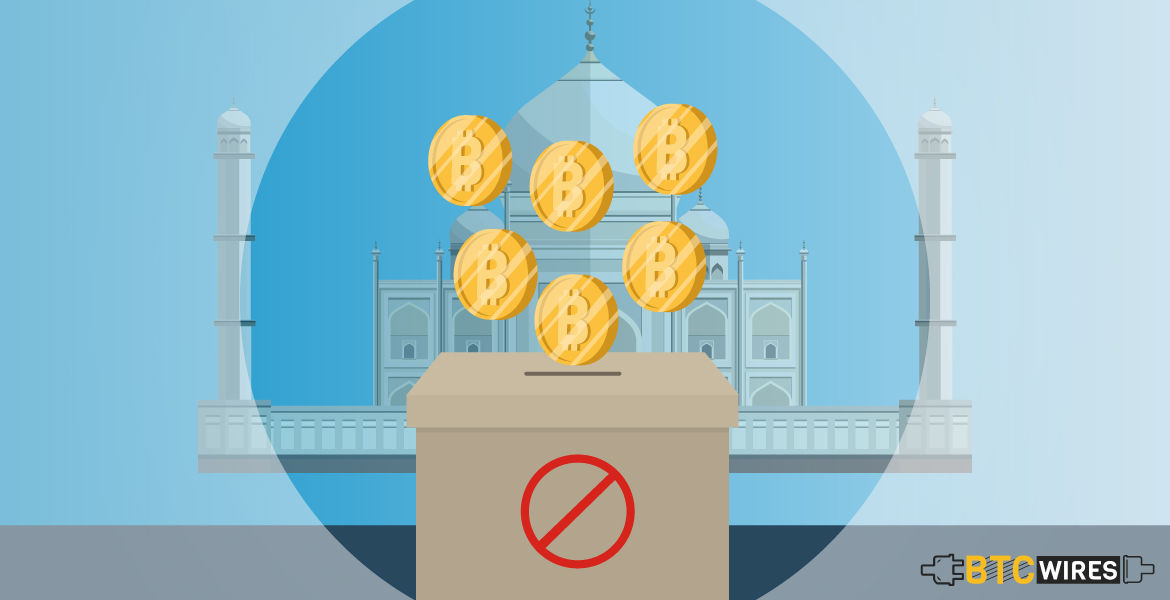The world media has been abuzz with news headlines such

The world media has been abuzz with news headlines such as ‘cryptocurrency faces blanket ban in India’. While the media may be in a frenzy and proclaiming that the end of crypto in India is near, but is it really the case?
The news doing the rounds is that at a meeting of the Financial Stability and Development Council (which is headed by Finance Minister of India Arun Jaitley) held on October 30, 2018, the issue of cryptocurrencies was discussed. Interestingly, the meeting was attended by important representatives such as Ajay Tyagi who is the Chairman of the Securities and Exchange Board of India, and BP Kanungo, the Deputy Governor of the Reserve Bank of India.
As per the press release by the Press Information Bureau, the meeting deliberated on the issue of cryptocurrencies. PIB’s release stated that:
“The Council also deliberated on the issues and challenges of Crypto Assets/Currency and was briefed about the deliberations in the High-level Committee chaired by the Secretary (Economic Affairs) to devise an appropriate legal framework to ban use of private cryptocurrencies in India and encouraging the use of Distributed Ledger Technology, as announced in the Budget 2018-19.”
To get to the root of the situation, let’s take a brief look at India’s stance on cryptocurrency and its underlying Blockchain technology.
The recent meeting saw Subhash Chandra Garg in attendance. Subhash is the Secretary at the Department of Economic Affairs, and notably, he also heads a panel on cryptocurrencies which was set up in December 2017 for the regulation of the same. Interestingly the panel was to come up with a draft for the regulation of cryptos in India by July 2018, but the same has been delayed ever since.
Hence, until now there is no clarity on the rules that will govern crypto assets in the country. Not to mention that the word ‘use’ in PIB’s statement may imply that the ‘proposed’ legal framework governing cryptocurrencies in India will only be relevant to the trading of the virtual currency and will not have any bearing on its possession.
Early this year we saw the Reserve Bank of India deal a blow to the crypto market by banning financial institutions from conducting business with any cryptocurrency exchange in the country. Consequently, Zebpay, the largest crypto exchange in the country moved overseas, while trading volumes saw a massive decline, yet there still remain about 6 million crypto users in the country.
While exchanges are in a legal tussle with the government, the last hearing of the matter in the Court was held on October 26, 2018, when the court has asked the government to clarify its stance on digital currencies and has also been requested to file an affidavit. Therefore, until now there is no clarity on the use of crypto in the country, hence the talk of a ban is far-fetched.
Moreover, the point in the statement about the encouragement of the distributed ledger technology of Blockchain encapsulates the fact that the government doesn’t have a primary motive to eradicate currencies, it is only out to ban any illegal activities arising from the same.
To conclude, banning crypto would mean that the government stands the chance to lose out on becoming an early adapter to the technology that underlies cryptocurrencies and also stands to lose out on the income tax earned through the crypto business. With General Elections just around the corner, the contesting parties will have to make their stance on cryptocurrencies clear as it will be a hot topic. Hence, we will just have to wait and watch what the next move of the government on crypto regulations will be.

